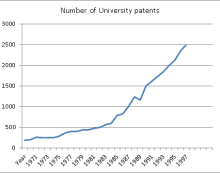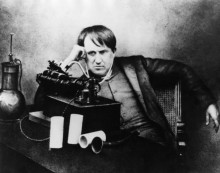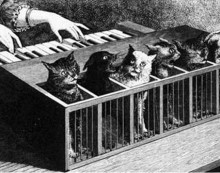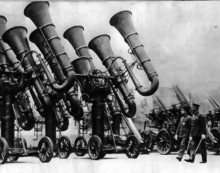1.1 Intellectual property issues that are relevant in university settings
With practicality and efficacy being the guiding principles of this volume, we have tried to avoid overloading it with excessive information extraneous to the IP cases actually occurring in academic environment. Hence, rather than meticulously delineating all the exceptions and possible non-standard circumstances, we prefer to focus our attention on a limited number of the...
US PATENT EXPERT PUBLICATIONS
Introduction to Intellectual Property in Academia 1.2
1.2 History and ethics of university IP laws
The differences between the approaches to handling of the IP in the university and industry settings are closely related to very dissimilar societal roles that Academia and Industry have played throughout history. Traditionally, university scientists had been content to focus their inquisitive minds, for the most part, on basic research with any putative practical applications being tangential...
Introduction to Intellectual Property in Academia 1.3
1.3 Patents affecting university research
Let us delineate the benefits of patenting in the academic environment. First, the patent provides the recognition of the scientist as an inventor (which an article can do as well); Second, the patent can be counted as another publication; Third, since the patent is valuable to the university it helps to improve the scientist’s position there; The last, but far...
Introduction to Intellectual Property in Academia 1.4 – 1.5

1.4 Intellectual property is territorial
As we explore the IP terrain, we should bear in mind the territorial nature of intellectual property rights and the difference in IP protection worldwide. Unable to envelop all of the localities, we shall primarily focus on the United States laws, though we sincerely believe this information would be useful to scientists from all over the world. Local flavor notwithstanding, the...
Introduction to Intellectual Property in Academia 1.6 – 1.7
1.6 IP in various types of university–industry agreements
- Research Agreements
- “Fundamental” Research Agreements
Introduction to Intellectual Property in Academia 1.8
1.8 Conclusions
In the introduction, we outlined specific features, characteristic to intellectual property at the universities. Now we will discuss those topics in details in the following chapters.
References:
- Kenney, M. The ethical dilemmas of University-Industry Collaborations, Journal of Business Ethics, 6:2, Feb 1987, p.127.
- Rubin, H., Bukofzer, A., Helms, S, “From Ivory tower to Wall Street – University technology transfer in US, Britain, China, Japan, Germany, and Israel”,...
Short Course: Intellectual Property in academia: nuts and bolts of patenting

Summary
This course equips attendees with key working skills crucial to the patenting process. In particular, the course addresses benefits in filing the patent application for the inventions in academic community: either using Technology Transfer Office of the University or through own company. Patent ownership, including research performed under Government contracts, industry sponsored research, work done during non-working hours, is discussed as well as the rights...
Who owns student inventions is a complicated issue.

On the one hand, students are generally paying for their education, so if they invent
something, that invention cannot be classed as part of a “job for hire” at their university. On the other hand, student inventions are typically made with support from university staff, and such help can be crucial in an invention’s success.
Problems with ownership of student inventions have become more acute thanks to the current outburst...
The patent is granted for novel, useful and non-obvious invention.

"Novelty" is strictly defined by patent law. An invention cannot be patented if the patent applicant invented it, when:
• The invention was known or used by others in the United States;
• The invention was patented or described in any printed publication;
And more than one year prior to the inventor's U.S. patent application
• The invention was patented or described in a printed publication in any...


